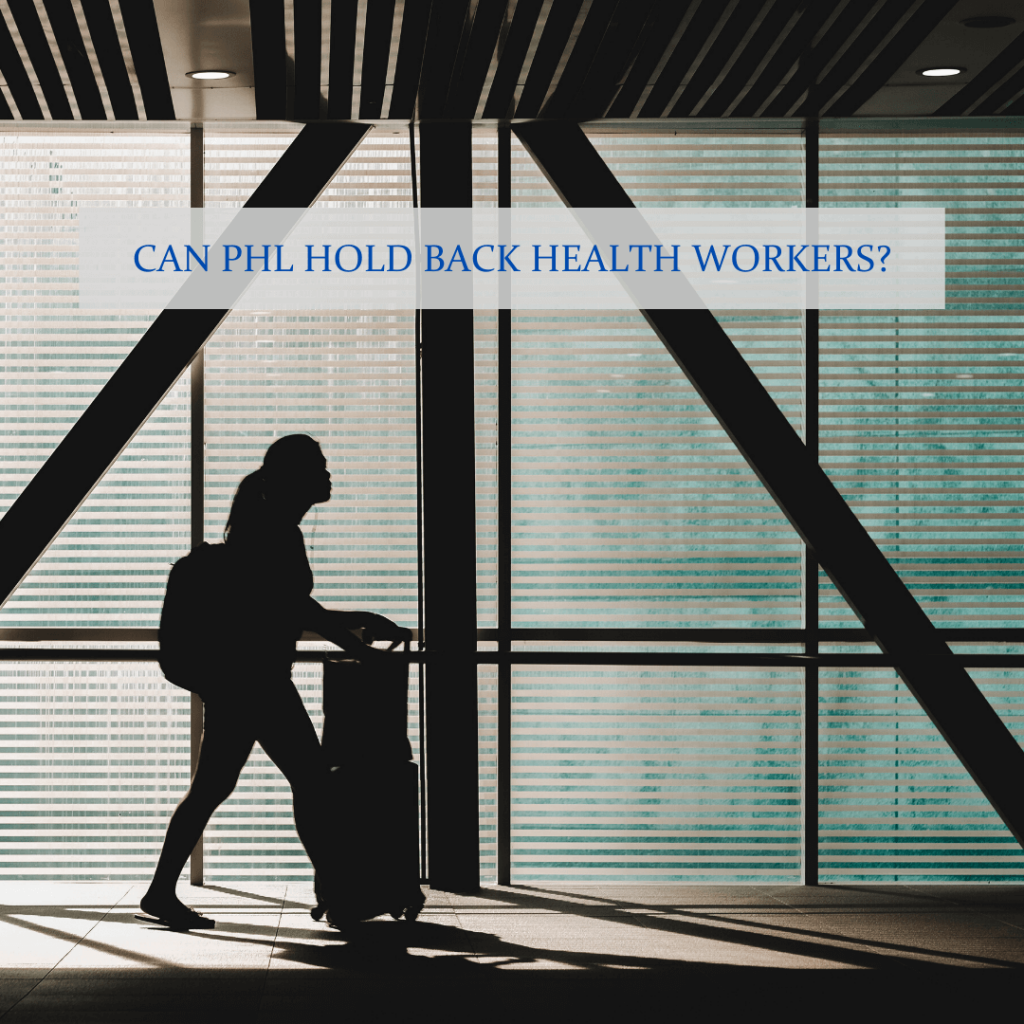
Published 27 April 2020, The Daily Tribune
The global COVID-19 pandemic has seized the world. Excluding China, the United States is hardest hit. As of 23 April 2020, out of 2,646,247 reported infected worldwide, the United States has 849,092 individuals infected with 47,681 deaths. Reeling from its hits, the US Department of State Consular Affairs issued a statement “encouraging” medical professionals seeking work in the United States, particularly those working on COVID-19 issues, to contact the nearest US Embassy Consulate for a visa appointment.
Staffing agencies aggressively came out with advertisements marketing positions for registered nurses willing to enter into COVID-19 “war zones” for a 13-week assignment in New York City, with an unprecedented crisis pay of as much as $10,000 per week, plus benefits — yes, that translates to approximately $130,000 (or roughly, P6.5 million) for 13 weeks’ work. Once the crisis is over, an average annual salary of $77,000 (or approximately P3.9 million per year) still awaits registered nurses who wish to stay and work in New York City.
Immediately, members of the Philippine Congress scrambled together, calling for legislation to stop health care personnel from being deployed to other countries due to the need for them to be here in the country. Two days later, on 2 April 2020, the Philippine Overseas Employment Agency under the Department of Labor and Employment issued a stop order, restricting health care workers from leaving the Philippines. A week later, on 13 April 2020, the Department of Foreign Affairs shot back, saying that it would discuss with the President the allowance health care workers with existing contracts abroad to travel out of the country, but at the same time, suspend future applications to work abroad.
In this tug-of-war, one may ask — can the Philippines legally prevent health care workers from leaving the country to work abroad? The short answer is: Yes, it can.
But, is it the right thing to do?
Section 6 of Article III (Bill of Rights) of the 1987 Philippine Constitution gives Congress (or the local government unit, through its legislative branch) the power to provide by law restrictions to the right to travel. The Constitution provides:
“The liberty of abode and of changing the same within the limits prescribed by law shall not be impaired except upon lawful order of the court. Neither shall the right to travel be impaired except in the interest of national security, public safety, or public health, as may be provided by law.”
Undoubtedly, it could be easily argued that the current COVID-19 pandemic is a matter involving not only public health, but also public safety and even national security. A mass exodus of health care professionals — to seek employment out of the country — would be disastrous for our flailing health care system.
Historically, the Philippines has seen a migration of health care workers abroad. While producing an average of 38,000 newly registered nurses a year, a 2016 survey found that an average of 23,334 nurses migrate from the Philippines to other countries yearly. In 2019, the Philippine government hired approximately 3,600 nurses only, while an additional 13,000 nurses needed to be employed that year.
So, would it be the right thing to do for Congress to prohibit health care professionals from leaving to work abroad at this time? What can the Philippines do?
Our Constitution leaves that determination to the Philippine Congress. Meanwhile, it makes sense to prohibit such travel, for a limited amount of time — all for the benefit of public health, public safety and national security in the Philippines.
One thing that Congress has recently done for health care professionals is substantially increase their salaries. At the start of this year, as of 1 January 2020, Congress raised the salary grade of government nurses from salary grade 11 to salary grade 15. So, from an average annual base income at P160,000, government nurses now get a base pay of P330,000 per year.
On 23 March 2020, President Duterte granted all COVID-19 frontline workers (i.e. public medical workers and other government employees) who physically report for work an additional hazard pay of P500 per day, plus other benefits. Private hospitals and other health facilities are likewise encouraged to grant a similar benefit to their health workers and staff exposed to COVID-19. A step up in compensation is a step in the right direction.
Moreover, the World Health Organization (WHO) set standards for the ideal doctor-to-patient ratio as 1:10,000. But, as of 2016, our Department of Health reported that the Philippines’ doctor-to-person ratio is approximately 1:33,000. Meanwhile, WHO set the ideal nurse-to-patient ratio at 20:10,000; whereas, in the Philippines, our nurse-to-patient ratio is 8.67:10,000.
COVID-19 has magnified the continuing health care problem of the Philippines. This pandemic clearly showed us that our health care system has an acute need for a lot of things, not to mention, the health care workers. This fact alone should put things in perspective and guide our lawmakers to prioritize what is essential.
So, we ask — would it be the right thing to do for Congress to prohibit health care workers from leaving the country to work abroad for a reasonable period of time while we are battling this COVID-19 pandemic? Definitely. And, in fact, Congress should act soonest.
For comments and questions, please send an email to cabdo@divinalaw.com.

